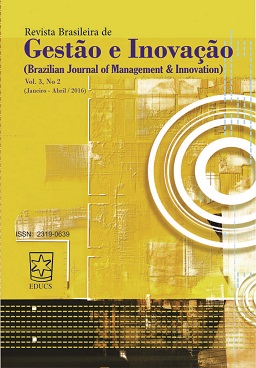Mídia Paga ou Espontânea? Percepções de profissionais de marketing e comunicação sobre a importância de anúncios publicitários e notícias
Keywords:
Marketing, Comunicação, Mídia, Publicidade, Assessoria de Imprensa.Abstract
Este artigo, de natureza exploratória, tem como intuito elencar questões concernentes aos investimentos em comunicação midiática em marketing, considerando aspectos relativos aos gastos financeiros e ao ad avoidance, que impactam, respectivamente, sua eficiência e eficácia. Apresenta-se, define-se e problematiza-se as duas modalidades de inserção midiática em marketing: anúncios publicitários e notícias de assessoria de imprensa, e tem-se como objetivo compreender os motivos e contextos para a escolha e direcionamento de esforços a cada uma dessas opções por profissionais de marketing e comunicação, com atuação em empresas anunciantes, agências e veículos de comunicação. Para tanto empreende-se a metodologia de entrevistas em profundidade com profissionais dos três âmbitos organizacionais de interesse: empresas anunciantes, agências e veículos de comunicação. Com isso, infere-se uma comum percepção dos profissionais em torno da credibilidade transmitida pelo formato de mídia espontânea, em contraste com maiores alcance e frequência atribuídos aos anúncios pagos. Há também considerações, embora divergentes, a respeito das dependências entre investimentos em mídia paga e conquista de notícias, relacionadas à geração de pautas e ao relacionamento pessoal e financeiro com os veículos de comunicação. Por fim, contrasta-se os resultados obtidos com as conclusões teóricas de estudos anteriores sobre o tema a fim de concluir o estudo e sugerir continuidades.
DOI: 10.18226/23190639.v3n2.01
Downloads
Published
How to Cite
Issue
Section
License
The author must guarantee that:
- there is full consensus among all the coauthors in approving the final version of the document and its submission for publication.
- the work is original, and when the work and/or words from other people were used, they were properly acknowledged.
Plagiarism in all of its forms constitutes an unethical publication behavior and is unacceptable. Revista Brasileira de Gestão e Inovação has the right to use software or any other method of plagiarism detection.
All manuscripts submitted to RBGI - Revista Brasileira de Gestão e Inovação go through plagiarism and self-plagiarism identification. Plagiarism identified during the evaluation process will result in the filing of the submission. In case plagiarism is identified in a manuscript published in the journal, the Editor-in-Chief will conduct a preliminary investigation and, if necessary, will make a retraction.
This journal, following the recommendations of the Open Source movement, provides full open access to its content. By doing this, the authors keep all of their rights allowing Revista Brasileira de Gestão e Inovação to publish and make its articles available to the whole community.
RBGI - Revista Brasileira de Gestão e Inovação content is licensed under a Creative Commons Attribution 4.0 International License.
Any user has the right to:
- Share - copy, download, print or redistribute the material in any medium or format, linking to RBGI site.
- Adapt - remix, transform and build upon the material for any purpose, even commercially.
According to the following terms:
- Attribution - You must give appropriate credit, provide a link to the license, and indicate if changes were made. You may do so in any reasonable manner, but not in any way that suggests the licensor endorses you or your use.
- No additional restrictions - You may not apply legal terms or technological measures that legally restrict others from doing anything that the license permits.
#RBGI







